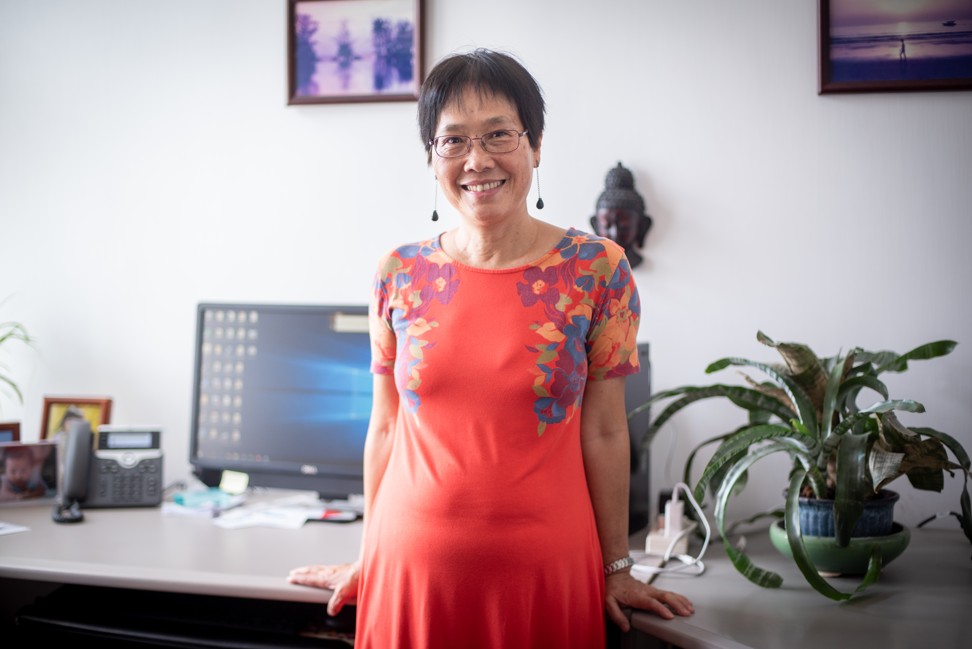
Anorexia: why Asia isn’t talking about this mental illness, and the survivors and therapists battling ignorance of the eating disorder
- Eating disorders are not widely discussed or acknowledged in places such as Malaysia and Hong Kong, where there is pressure for people to be thin
- Because of the stigma about mental illness, anorexia sufferers often do not seek help – and where there is any, it is expensive. Survivors hope to change that
When Yong Jun Kueh was 18, she discovered she had gained weight over the course of her secondary school final exams, so she went on a two-day detox programme.
After 48 hours on a diet of juices, protein shakes and vitamin tablets, her trousers hung loose on her hips, and she felt satisfied. So she extended the programme for a few more days. Then, she extended it for a couple more weeks. A cycle had begun.
The young woman’s weight tumbled. At the height of her eating disorder, she weighed 35kg – less than an average 11-year-old girl. She was dying, but she felt carefree.
“I was conscious that I was sick. I wanted to use my willpower to overcome my body instincts,” she explains. “I felt a relief from the need to achieve something in my life.”

Kueh’s struggle is not uncommon. Eating disorders are a growing global health concern. According to a 2019 review of studies, the prevalence of eating disorders has more than doubled worldwide between 2000 and 2018, rising from 3.5 per cent to 7.8 per cent.
In 2007, researchers in Hong Kong found that 3.9 per cent of the city’s adolescent boys and 6.5 per cent of adolescent girls had experience of eating disorders. Another study that year found that about one in five secondary school students aged 12 to 18 were at risk of disordered eating – 26.6 per cent of girls surveyed, and 18.5 per cent of boys.
Beating anorexia: what causes the eating disorder – and how to support someone battling it
A study published in the science journal JAMA Psychiatry in 2011 concluded that people with eating disorders have “significantly elevated mortality rates” – much higher than for other mental illnesses. The highest mortality rate was in those with anorexia nervosa.

Joyce Ma, a Chinese University of Hong Kong professor, has carried out a 10-year research project on anorexia nervosa in Hong Kong, and has found many causes of the disorder, including a sense on the part of the sufferer that starving themselves gives them a feeling of being in control.
“Children and adolescents with anorexia nervosa tend to experience a strong sense of ineffectiveness and inadequacy,” she says. “Dieting and reducing body weight gives them a strong sense of control.”
Ma explains that in Chinese societies such as that in Hong Kong, having a family member with a mental disorder is perceived as shameful, so patients and families avoid seeking professional help.
Gabrielle Tüscher is an eating disorder specialist with more than 18 years of experience as a private therapist and registered dietitian in Hong Kong. “Eating disorders are just as prevalent in Asia as they are in the West,” she says, but that there is a significant level of stigma surrounding them and a lack of understanding of them in Asian culture.

Steph Ng was diagnosed with anorexia when she was 16 and, though her weight had plummeted, her illness had gone unnoticed. A doctor only discovered her condition during a routine medical check-up when he could not find her pulse. Her mother took her out of school to feed her until she gained weight.
Ng says the lack of research on eating disorders in Hong Kong is deplorable. “People think it doesn’t exist,” she says. She saw three different therapists before she found the right support.
“They don’t really listen. Eating disorders are not treated like other mental illnesses. They are often seen as someone’s choice, someone’s fault.”
Today, Ng studies psychology in New York, investigating the connection between Asian culture and eating disorders. Her research has shown that cultural eating norms and the ideal of thinness in Asian contexts create conflicting expectations within people.
“There is a very distinct connection between food and morality,” she says. If you are not thin enough, you may not see yourself as a “good” person.

Kueh agrees, saying she felt that “no one would understand”.
“Eating disorders are invisible in Hong Kong. People don’t know it’s an issue,” she says. Anorexia affected her throughout her four years of university. “There are many walking skeletons, everyone promotes thinness, but people never talk about eating disorders,” she says.
Some therapists fail to provide proper therapy, while others reject eating disorder cases altogether. The few trained professionals practising in Hong Kong have been trained abroad, Tüscher says.
Only one public hospital in Hong Kong offers an inpatient clinic for eating disorder treatment; it focuses mainly on weight restoration, but offers little psychological follow-up, she says.
On top of that comes the cost barrier – the price of private treatment can be prohibitive for those seeking help in Hong Kong. “There are ways to work around [the cost]. Proper treatment is possible – people just have to know where to find it,” Tüscher says.
Recovery never ends. There is always something I can work on, and there is always something I’ve done that I can be proud of
Non-profit organisations have taken the lead in promoting public awareness of eating disorders in Hong Kong and in providing help.
Tüscher has started to train other psychologists in treating eating disorders, but she says it’s difficult to bring the right training into Asia and to draw people’s interest. “Mental disorders [have] always been there, but people are just starting to talk about them.” Eating disorders, she adds, are seen as the least important.
In 2018, Kueh moved back to her home country, Malaysia, to work as a fitness coach. Building up muscle has “provided her a platform to eat in more diversity and bigger portions”, and she regularly takes part in bodybuilding and beauty contests. In 2019, she was selected as a finalist for Miss World Malaysia.
She has proposed launching an awareness campaign there about eating disorders.

“The situation is even worse in Malaysia. People just talk about losing weight”, but not about eating disorders, Kueh says. “And there are no treatment options.”
“My desire is to come back to Hong Kong and address the treatment gap,” says Ng, who wants to expand Body Banter into a non-profit organisation and work with students. “It wasn’t a fun time in my life, but it definitely shaped me. So I might as well use it.”
